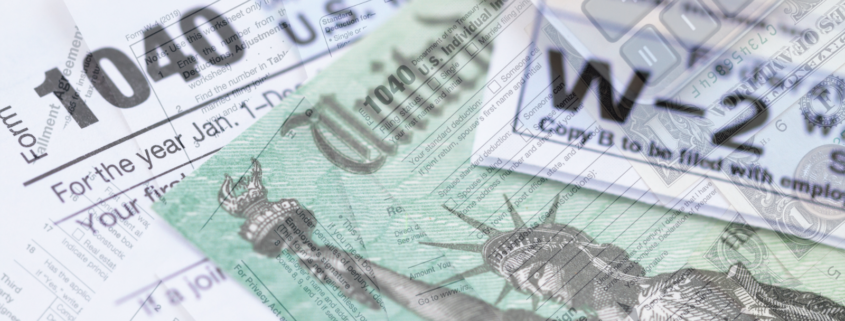Which Types of Tax Debts Are Dischargeable in a Chapter 7 Bankruptcy?
If you’ve looked into bankruptcy as a way to get control of your debt, you’ve likely heard that tax debts cannot be discharged. For some people, this is a dealbreaker—if tax debt makes up the majority of your outstanding debt, you might believe that bankruptcy isn’t even worth it for you. However, it’s untrue that tax debt can never be discharged in bankruptcy. Learn more about the nuances of tax debt in bankruptcy, and when you’re ready to learn more about your legal options, call Padgett & Robertson at 251-342-0264.
Limitations on Tax Debt Discharge
Most people know not to take the Internal Revenue Service lightly and for good reason. The IRS goes after what they are owed with the full force of the federal government behind them. Even if you outrun the IRS for a while, they will most likely catch up with you eventually.
This is why taxes are handled so carefully in bankruptcy. The Bankruptcy Code is very clear about how and when tax debts can be discharged. The vast majority of filings do not meet these requirements, which is why most people believe that tax debts can never be discharged.
Don’t be discouraged, though. If your debts do meet certain qualifications laid out in the Bankruptcy Code, you can save yourself thousands of dollars and avoid the stress of trying to deal with the IRS.
When Taxes Can Be Discharged
First, only income taxes can be discharged in bankruptcy. Other taxes, including fraud penalties and payroll taxes, cannot. Second, you must have filed the return at least two years ago. Also, this only includes tax returns you have actually filed yourself (if you failed to file your own taxes and let all of your extensions expire, the IRS may have produced an estimate of the amount of taxes you owe). In this situation, any amount due is typically not dischargeable.
Another condition is that the taxes must be from a return that was due at least three years prior to your bankruptcy filing date. Taxes must have been assessed at least 240 days prior to your filing date, and you must not have engaged in fraudulent behavior or tax evasion.
As you can see, this significantly limits which types of taxes can be discharged through bankruptcy. More recent returns and newly acquired tax debts cannot be eliminated and will remain even after your Chapter 7 bankruptcy has been discharged.
Tax Debts That Cannot Be Discharged in Bankruptcy
To start, note that the IRS has a much easier time proving their side than you do. They have to meet minimal requirements to keep your debt from being discharged. They simply have to prove that it is not dischargeable by providing the relevant dates, the type of tax it is, and whether or not there are penalties applied. And they only have to prove this via a preponderance of the evidence, which means providing enough evidence to show that their claim is more than 50% likely to be true.
What type of taxes are specifically forbidden from being eliminated in bankruptcy? Secured taxes, better known as tax liens, cannot be discharged. Recent property taxes cannot be discharged. While older property taxes can technically be discharged, the county is likely to attach a lien to your property. FICA, Medicare, and other taxes withheld by third parties cannot be removed in bankruptcy, nor can many employment taxes.
How This Affects Your Bankruptcy Case
Depending on the amount of taxes you owe, this information could significantly impact your bankruptcy filing. If taxes are a significant portion of your debt, their dischargeable or non-dischargeable status could be the determining factor in whether or not you file.
However, it’s impossible to know exactly how your taxes will be handled in bankruptcy without speaking to a skilled and knowledgeable bankruptcy attorney. Bankruptcy laws are complex and multifaceted, and an attorney can give you a full breakdown of what your financial situation will look like if you file.
Discuss Your Bankruptcy Options with Padgett & Robertson
If you’re bogged down by consumer and medical debt, bankruptcy may be the best way to wipe the slate clean and start over. If you have significant tax debts, however, then this might not be the case. The team at Padgett & Robertson can review your options with you and help you make the right choice based on your specific needs. Schedule a consultation with our team now by contacting us online or calling us at 251-342-0264.





Leave a Reply
Want to join the discussion?Feel free to contribute!